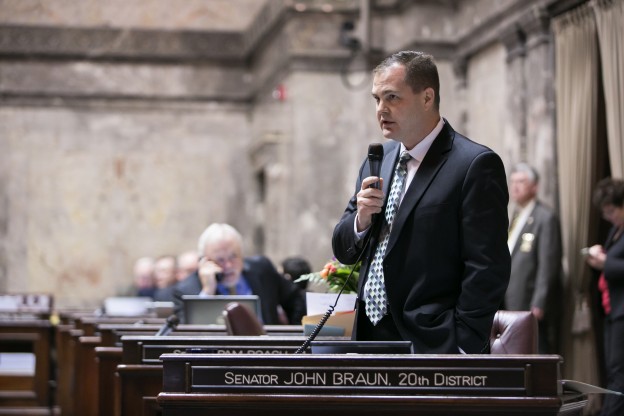The state Senate today approved Sen. John Braun’s legislation that would make permanent a state policy that returns money from federal timber sales to local schools. Senate Bill 6292 would eliminate the reduction of state school funding to districts based on what they receive in federal forest revenues. The measure cleared the Senate by a vote of 35-14 and moves to the House of Representatives for consideration.
“This bill makes a small but needed change to restore resources for many of our school districts, especially in rural areas,” said Braun. “The state has been reducing its basic education funding to districts that received federal timber revenues, and that places extra burdens on the districts that are least able to handle them.”
Currently, 21 percent of property in Washington is designated as national forest, which is exempt from property tax. These federal funds are designated to go to the school districts in those areas to make up for lost property tax revenue. However, the state has been deducting that same amount from their basic education funding, effectively negating the goal of the program. Braun’s bill would eliminate the reduction in state basic-education funding to school districts that receive federal forest revenue, restoring the original intent of Congress.
“I’ve worked over the past several years to keep these funds available through the budget to the 215 school districts that receive federal forest revenues and this legislation provides a permanent solution,” Braun said.











